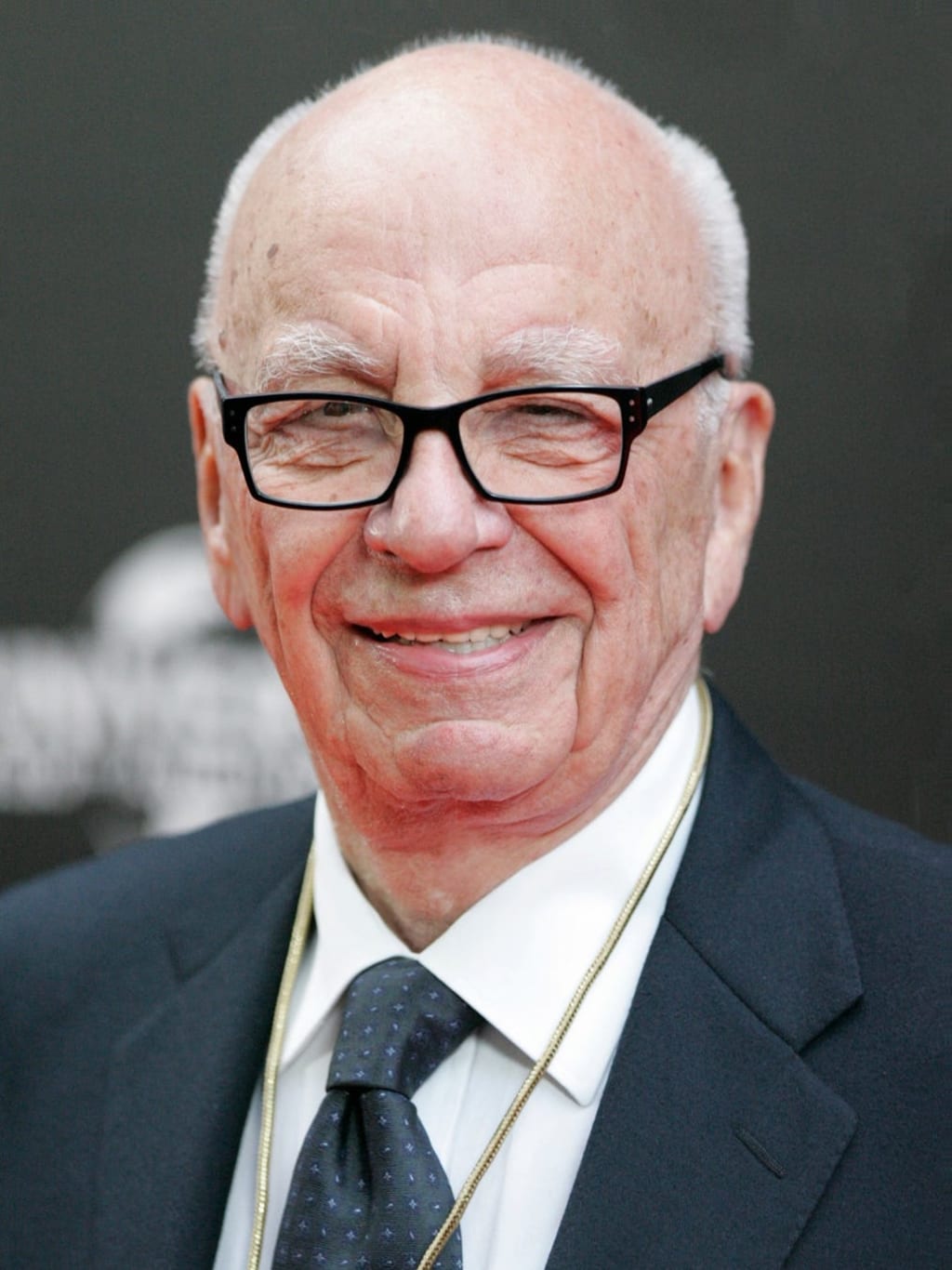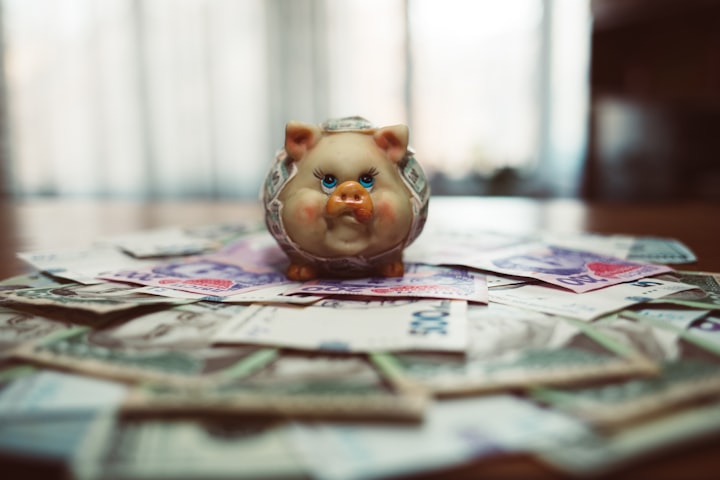The Biggest Controversies Of Rupert Murdoch: A Deep Dive
Exploring the life of a mogul

Rupert Murdoch is a name that is synonymous with media and business. As the founder of News Corporation, he has been instrumental in shaping the media landscape globally. With a net worth of around $20 billion, he is considered one of the world's most powerful and influential media moguls. However, numerous controversies, such as claims of political bias and phone hacking, have tarnished his career. Let's take a deeper look at this controversial figure.
Early years
Born in Melbourne, Australia, on March 11, 1931, Keith Rupert Murdoch spent his early years on a farm with his two sisters and a brother. Rupert quickly acquired a deep appreciation for the arts at a young age thanks to his mother, who filled their home with classic literature and captivating music.
Proving that the apple didn't fall far from the tree, Rupert's father, Sir Keith Murdoch, a renowned journalist and World War I reporter, instilled in him a passion for storytelling. As a youngster, Rupert Murdoch showed a keen interest in journalism and started his career as a copyboy at the Melbourne Herald. Rupert Murdoch quickly rose through the ranks, proving to be a skilled operator and a risk-taker.
When Rupert reached adulthood, he was sent off to the prestigious Oxford University in England to pursue his studies. However, instead of burying his nose in books, young Rupert became infamous for his exploits, such as chasing after girls, revelling in parties, testing his luck in gambling, and indulging in wild drinking binges.
After his stint in Oxford, Rupert embarked on his professional journey in journalism. Starting as a reporter for the Birmingham Gazette, he swiftly climbed the ranks, eventually earning an apprenticeship at the esteemed London Daily Express. It was there that he unravelled the secrets of captivating readers and became a master of crafting gripping stories.
Sadly, in 1952, the unexpected passing of Sir Keith Murdoch put an end to 21-year-old Rupert's carefree existence. After completing his apprenticeship, Rupert returned to his hometown in Australia.

Driven by an unwavering determination to carry on his father's incredible legacy, Rupert Murdoch breathed new life into The News, a publication he had inherited upon his father's passing.
At the time, the Adelaide-based paper had a circulation of just 70,000, but Murdoch saw the growth potential. With fiery ambition and a keen sense for sensationalist reporting, Murdoch swiftly transformed The News into a captivating publication, filled with scandalous stories and provocative headlines. The paper's circulation skyrocketed, propelling Murdoch towards his goal of media dominance.
As we'll see throughout his life, Murdoch was a man who refused to rest on his laurels. With fiery ambition and an unyielding drive, he embarked on a journey of empire expansion. His acquisitions knew no bounds, as he acquired renowned newspapers across Australia like The Sunday Times in Perth and The Daily Mirror in Sydney. Not content with his accomplishments, he even launched a national newspaper, aptly named The Australian.
But Murdoch's voracious appetite for success didn't end there. His sights were set on the United Kingdom, where he made his mark by purchasing News of the World in 1969, followed swiftly by The Sun in 1970. This was just the beginning. In a move that shook the British media landscape, he secured The Times and The Sunday Times in 1981, leaving an indelible imprint on the industry.
With unwavering boldness, Murdoch set his eye across the pond to the USA. Beginning in the early 1970s, he strategically snatched up a multitude of local newspapers across the nation. From the iconic New York Post to the San Antonio Express, the Boston Herald, and the Chicago Sun-Times, Murdoch's reach spanned far and wide.
But he wasn't finished yet. In a game-changing move in 1985, he purchased 20th Century Fox, forever altering the media landscape in the US and paving the way for the creation of Fox News in 1996.
By the 1990s, Murdoch's empire was vast, and he was considered a media baron with considerable influence on the global stage.
Political meddling
But as the saying goes, with great media power comes the inevitable allure of political meddling. And Rupert Murdoch has done his fair share of meddling. Throughout the years, he has wielded his media influence like a master puppeteer, pulling the strings behind the scenes of political landscapes.
For instance, in 1975, Murdoch's newspaper, The Australian, played a crucial role in the downfall of then Australian Prime Minister Gough Whitlam, by relentlessly attacking him in their coverage.
A declassified United States diplomatic report revealed that nearly 10 months before the political crisis, Murdoch brazenly directed his editors to "kill Whitlam."
The implications of this command were immense. With his vast publishing empire, which included prominent newspapers such as the aforementioned The Australian and publications in every Australian capital, Murdoch's editorial decision served as a reminder of the immense influence the media mogul could wield, transforming the political landscape and shaping the course of history.
But of course, his election meddling wasn't limited to his native Australia.

In the 1992 UK general election, the Conservative Party achieved an unexpected victory, and the infamous headline "It's The Sun Wot Won It" accredited The Sun newspaper for its pivotal role. Under the ownership of media tycoon Rupert Murdoch, The Sun tirelessly campaigned against Neil Kinnock, the leader of the Labour Party. With its extensive circulation, this tabloid fervently encouraged its readers to rally behind the Conservatives.
Their efforts culminated in a memorable election day headline that questioned the consequences of a Kinnock win: "If Kinnock wins today, will the last person to leave Britain please turn out the lights?"
The headline has been immortalised in British newspaper lore and is often mentioned in discussions of the power of the media in shaping public opinion and electoral outcomes.
Similarly, in 2016, Fox News garnered widespread recognition for its pivotal role in catapulting Donald Trump to victory as it showered him with extensive, favourable, and biased coverage.
The same year, the United Kingdom, amidst a fervent referendum, opted to leave the European Union, with media mogul Rupert Murdoch's newspapers, The Sun and The Times, staunchly supporting the Leave campaign. Criticism ensued, asserting that their coverage was unbalanced and overlooking critical issues. Notably, The Sun plastered the front page with the rallying "BeLEAVE in Britain" just days before the crucial vote. Accusations swarmed Murdoch's media empire, crediting it with significant sway over public sentiment and shaping the outcome of the historic referendum.

Climate change denials
Of course, no self-respecting controversial media tycoon would be complete without at least some climate change denial.
Amidst the devastating 2020 Australian wildfires, the coverage of climate change by News Corp. was laden with denial and far-fetched conspiracies. Shockingly, they disregarded the role of climate change in aggravating the fires. To add insult to injury, a host on Sky News audaciously claimed, "There is no doubt... that two decades-plus of climate change activism is making them [the fires] worse."
Furthermore, in a bold and fiery monologue on Sky News Australia, host Chris Kenny dismisses the debate about the role of climate change in the fires as "dumb," "reckless," and "offensive." Not to be outdone, Sky's Andrew Bolt, an unyielding climate denier, unleashes his brand of controversy, attacking then-16-year-old climate activist Greta Thunberg as "deeply disturbed" and "strange." With pointed words, he declares the "big global warming scare" as nothing more than a "con."
Phone hacking scandal
Now let's dive into the infamous phone hacking scandal and uncover the gripping events that unfolded.
It all began in November 2005, when the News of the World (NoW) caused a stir by publishing a story about Britain's Prince William's knee injury. After receiving a complaint from Buckingham Palace, detectives investigate and discover the information originated from a hacked voicemail.
The plot thickened in August 2006 when Clive Goodman and private investigator Glenn Mulcaire were arrested for their involvement in illicit phone hacking activities. However, the Press Complaints Commission's statement in May 2007 came as a surprise, claiming to have found no evidence of phone hacking at NoW.
Fast forward to September 2010, when former NoW journalist Sean Hoare made shocking allegations. He asserted that Andy Coulson, then editor of NoW, had encouraged phone hacking as a common practice at the paper.
As the story gained momentum, London's Metropolitan Police initiated a fresh investigation into voicemail hacking allegations at NoW on January 26, 2011. On April 10, 2011, News of the World issued an official apology for hacking into voicemails between 2004 and 2006, pledging compensation to unidentified victims.
The situation took a heartbreaking turn on July 4, 2011, when reports emerged that NoW journalists potentially hacked into the voicemail of missing teenager Milly Dowler, deleting messages and leading her parents to believe she was still alive.
Facing mounting scrutiny, Rupert Murdoch, then CEO of News Corp., pledged full cooperation with the investigation on July 6, 2011, condemning the accusations and vowing to address the scandal head-on.
Just a day later, on July 7, 2011, News International announced that the July 10 edition of News of the World would mark the paper's final publication, signalling the end of an era.

The scandal led to the closure of the News of the World and the arrest of several high-profile executives, including Rebekah Brooks, the CEO of News International, and Andy Coulson, the former editor of the paper and later director of communications for Prime Minister David Cameron.
As 2011 continued, the scale of the hacking operation became clear. News of the World had run a complex web of illegal activities, including bribery, phone hacking, and surveillance, against celebrities, politicians, and the victims of high-profile crimes.
The scandal rocked the entire UK media industry and the public's perception of the press, and Murdoch himself was forced to testify before members of the British Parliament.

Fox News controversy
Fox News, launched in 1996, quickly became a dominant force in cable news. The network, known for its conservative leanings and brash personalities, gained a massive following, drawing millions of viewers every day.
But with its success came accusations of bias and sensationalism. Critics accused the network of peddling fake news and catering to a right-wing agenda. The network's coverage of the 2020 presidential election, in particular, drew widespread criticism for its baseless claims of election fraud.
Critics have accused Murdoch of using his vast media empire to promote his political agenda, which tends to be right-leaning and pro-business and has a tendency to silence or marginalise dissenting voices. They point to examples such as the O'Reilly scandal, or the network's controversial coverage of issues like immigration and climate change as evidence that Murdoch is more interested in promoting his interests than in providing honest and objective news coverage.

It also raises important questions about the role of media ownership and consolidation. Murdoch's ownership of multiple major media outlets, including Fox News, The Wall Street Journal, and The New York Post, gives him enormous power to shape public discourse and influence policy outcomes. Critics worry that this concentration of media power in the hands of a few wealthy individuals can undermine the democratic process and limit the diversity of voices and perspectives that are heard in the public sphere.
Yet, despite the controversies surrounding Fox News and Rupert Murdoch, the network remains one of the most-watched news organizations in the US. In recent years, however, the network has faced increasing competition from digital media outlets and a younger generation that is more sceptical of traditional news sources. It remains to be seen what the future holds for Fox News and the Murdoch media empire.
Conclusion
Rupert Murdoch's captivating journey encompasses both triumph and turmoil, cementing him as one of the most intriguing media figures of our time. With his expansive media empire, he has revolutionised journalism and entertainment across the globe. However, amidst his unparalleled achievements, controversy and allegations of political bias have cast shadows. While his influence may have diminished over time, Murdoch's narrative continues to serve as a riveting cautionary tale for those aspiring to conquer the media realm.
About the Creator
Chelsea Rose
I never met a problem I couldn't make worst.






Comments (1)
Fascinating! Great work!